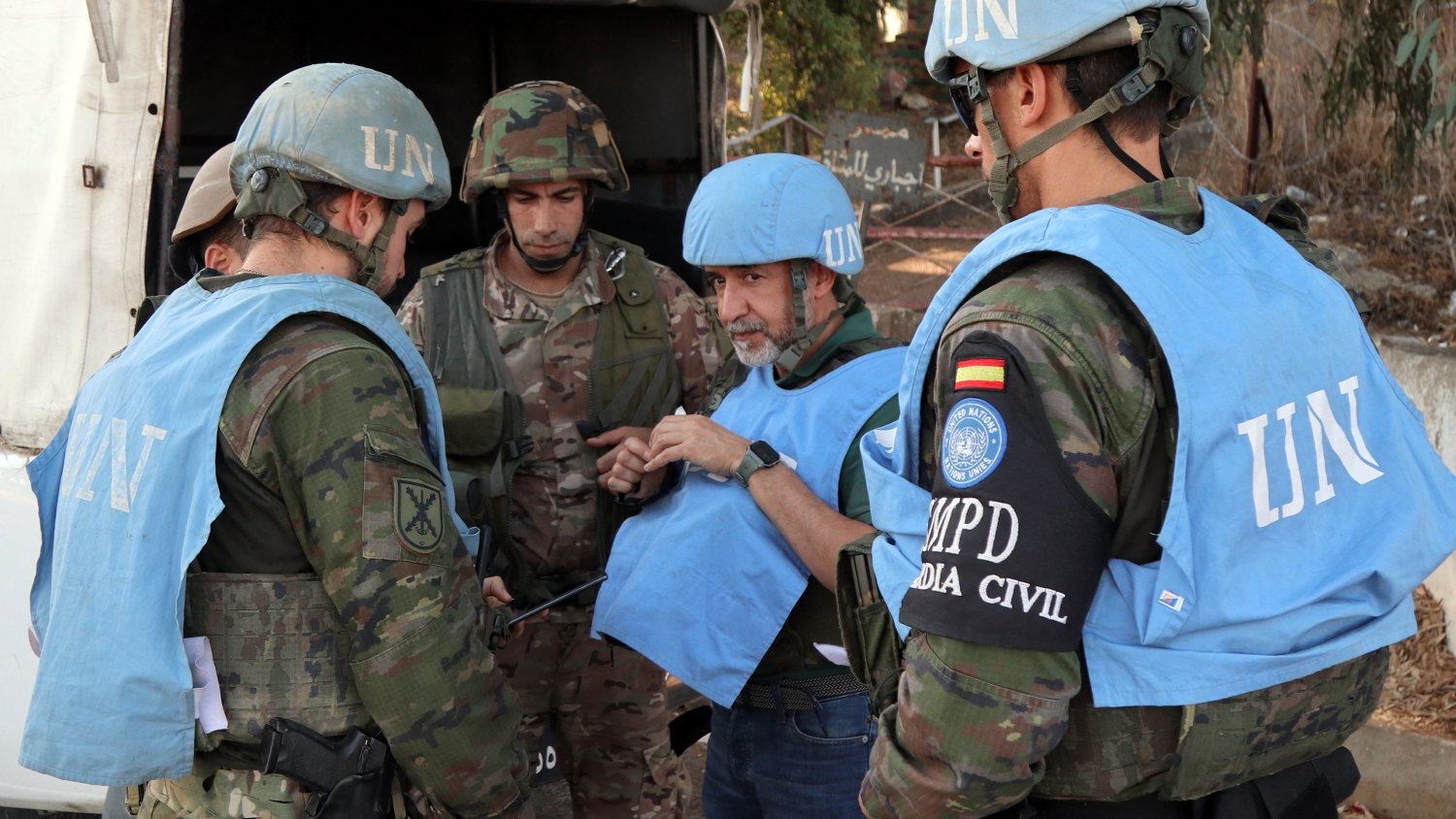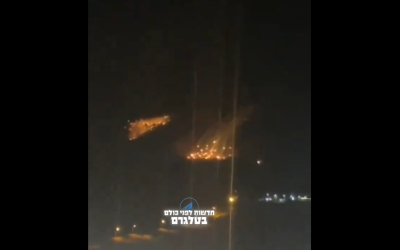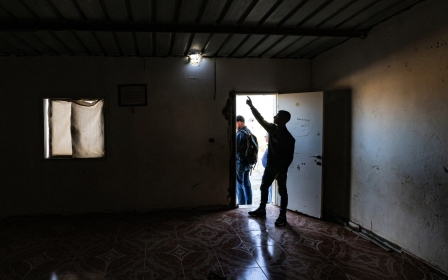Israel suspected of using white phosphorus on UN peacekeepers in Lebanon: Report

The Israeli military is suspected of forcibly entering a UN peacekeeping force's base in Lebanon and using white phosphorus in close enough range to injure 15 peacekeepers, The Financial Times reported on Tuesday, citing a confidential report from a country that provides peacekeepers to Lebanon.
The report details around a dozen attacks launched on UN troops in Lebanon, including damaging several facilities and injuring troops at border posts in south Lebanon.
The reported incident occurred on 13 October, when the United Nations Interim Force in Lebanon (Unifil) said two Israeli Merkava tanks broke through the gates of one of its bases. The tanks left after 45 minutes, following complaints from Unifil.
The Financial Times does not specify in its report where the incident took place, but on that same day, two tanks were reported to have hit the post of a Unifil base in Ramya, a town in southern Lebanon. Unifil said its peacekeepers were being treated for skin irritation and gastrointestinal reactions.
Within the next hour after the tanks left, several rounds were fired 100 metres north of the Unifil base, and the rounds emitted a "smoke of suspected white phosphorous" that ultimately injured 15 peacekeepers.
New MEE newsletter: Jerusalem Dispatch
Sign up to get the latest insights and analysis on Israel-Palestine, alongside Turkey Unpacked and other MEE newsletters
The Israeli military said one of its tanks reversed "several metres" into the Unifil gate, claiming it was only trying to evacuate injured soldiers.
The Israeli military added that it set off a smoke screen to provide cover.

Soon after Israel invaded Lebanon on 1 October, video footage began circulating online that appeared to show Israel's use of white phosphorus munitions.
The footage of the intensifying Israeli strikes near the Israeli-Lebanese border showed what looked like phosphorus bombs, as well as heavy artillery used by the Israelis.
White phosphorus is an incendiary chemical that ignites when in contact with air and can cause severe burns in people or structures it comes into contact with.
Inhalation of white phosphorus fumes can cause respiratory injuries and asphyxiation, and the chemical can inflict second and third-degree burns to the skin.
While the weapon can be used in conflicts under international law, the use of airburst white phosphorus in areas with a dense civilian population is prohibited, as the weapon inflicts indiscriminate harm on civilians.
Since the last Israel-Hezbollah war in 2006, Unifil is the only military force apart from the Lebanese army that can be deployed between the Israeli border and the Litani River, 30 kilometres north of the border, under UN Resolution 1701.
Following its invasion of Lebanon on 1 October, Israel ordered several Unifil outposts to leave, but the organisation refused.
World leaders condemn attacks on Unifil
Fifty countries contribute to the Unifil force in Lebanon, which consists of around 10,000 troops.
United Nations Secretary General Antonio Guterres has described the targeting of Unifil as "intolerable" and said "they must not be repeated". Several world leaders have also weighed in, including the prime minister of Spain who called on countries to stop selling weapons to Israel.
French President Emmanuel Macron has said Paris would not tolerate the "deliberate" targeting of UN peacekeepers by Israel and summoned Israel's ambassador to the country to seek an explanation of the incident.
China has also expressed "grave concern and strong condemnation" of Israeli attacks on UN peace operations.
"China expresses grave concern and strong condemnation over the Israeli Defense Forces' attack on Unifil positions and observation posts, which resulted in injuries to Unifil personnel," a Chinese foreign ministry spokesperson said last week.
US Secretary of Defense Lloyd Austin said last week that he told his Israeli counterpart to ensure the safety of UN peacekeepers along the demarcation line between Israel and Lebanon.
Washington has overall declared its support for Israel's invasion of Lebanon, saying that Israel has the right to defend itself.
Middle East Eye delivers independent and unrivalled coverage and analysis of the Middle East, North Africa and beyond. To learn more about republishing this content and the associated fees, please fill out this form. More about MEE can be found here.




